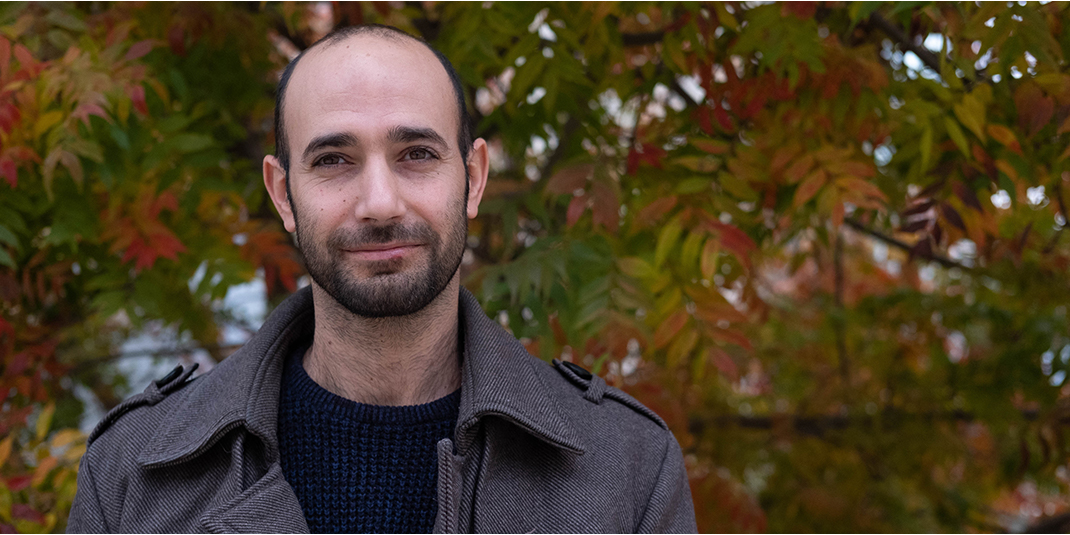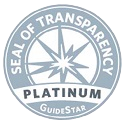Meet Guy

Meet Guy, middle school teacher at our Jerusalem school. He teaches geography, civics, and history, and is also involved with student led activities out of the classroom.
Introduce yourself. What is your role at Hand in Hand? How long have you been working here?
Guy: My name is Guy, and this is my 7th year teaching at Hand in Hand. I teach mainly civics, but I also teach history and geography. And I also teach juggling. I am a home teacher of 8th grade. I am also responsible for discipline and extracurriculars. I also help with social programming, like the student council.
What brought you to Hand in Hand?
What brought me to Hand in Hand, I heard about Hand in Hand in a lecture in university, and it sounded amazing. I dealt with politics for a long time before I heard about Hand in Hand, and I thought that education was the most significant political act that I could ever do. When I got here I found out I was right. And I feel that what I do here is the most meaningful thing I could ever do in my life. I am at the heart of the main conflict in the world and in Jerusalem, working with kids who may be leaders of the future or civilians that change reality.
What have you learned as a teacher, from other students or other teachers?
In my job I experience my own evolution, I am always growing and learning. Last year I had an Arab teacher as my teaching partner and I was working on a program for pluralistic Jewish identity in school with her, and she would do the same for a pluralistic Palestinian identity. And as we were working, I had a lot of opinions and ideas this new identity should be. But eventually during a dialogue with her, I realized it was problematic for me to be involved in working on Palestinian identity because I cannot fully understand what it means to be Palestinian. The Palestinian identity is not be affirmed by the state, so for me it’s easier for me break down the Jewish and Israeli identity and rebuild it to be something pluralistic and new. But it’s not the same as Palestinian identity; they can’t break it down as much because it’s not validated as existing as much as my identity is. So this was an epiphany that I grew to understand how other people identify. And I see kids I work with have their own initiatives. Here at the school we bring in space and time and a way to talk about social issues, and things that are important to students. It brings in Palestinians, who are generally out of this discourse, and it brings everyone in. Hand in Hand students are not out of the discourse, they are part of it and they feel the world is theirs, the environment is theirs to take care of. And I think it’s something amazing that doesn’t happen in many other places, in Israel at least.
How has your family reacted to you working here?
I have a story about my grandmother, she passed away a few months ago. Seven years ago when I came here, she was very angry that I teach here because she said you can’t trust Arabs. And she has her experience with Arabs when she was in Turkey, and through Arab countries to come here, and she would say that they’re always trying to kill Jews and that I can’t change it and I am betraying my people by working here. So we had a very difficult situation because I didn’t want to hurt grandmother, of course. And she even threatened that she would get a heart attack because of me! And eventually after a long conversation my claim was: “Look you have your experience of life; you decided what’s right and what’s wrong and what would be the future and I respect that. But I want to ask of you, grandma, to give me my own hope, my own right to have hope, to work toward this hope. And I choose not to believe we are not at the end of the story, and I do believe we can do things to change history. And I want to do that and be there.” And it was hard for her to accept but she did and this was an example of my family.
What do you think is different about teaching at a bilingual school?
I think I see the cultural differences much more deeply. For example we had a class about sex education and I knew my perspectives were different than other people in the class depending on the background. So I had to understand and stop myself from just talking about my opinions. And we openly talk about the differences between us and give it all legitimacy.
What do you want people to know about Hand in Hand above all?
I think people should know that this school is not a struggle. This is not something we are here to do because of a far ideology for peace, and that we sacrifice ourselves in order to have peace. For me, this is a gift. In daily life, every time I meet someone who is different from me and I need to think about myself and be clear about who I am and who they are, it makes me grow and my identity stronger and it’s a blessing. I’m happy to do this, this is something big in my life and I feel I can grow here much more than just a one culture school









